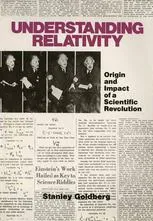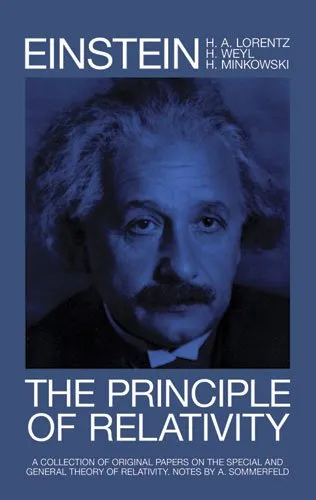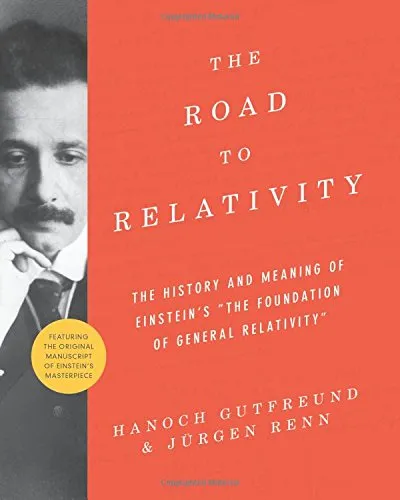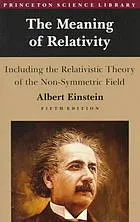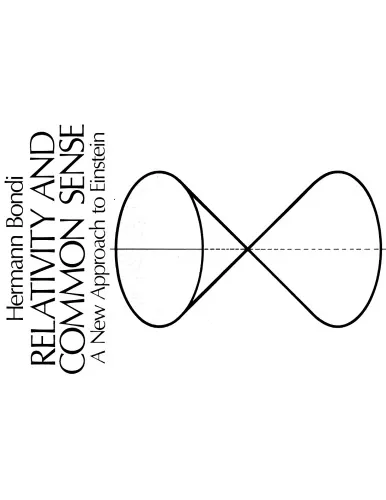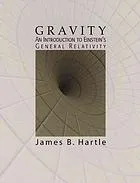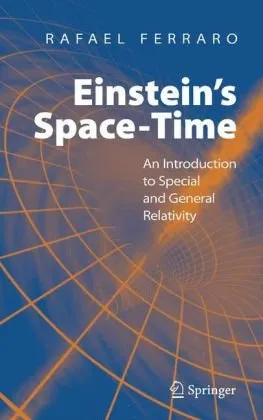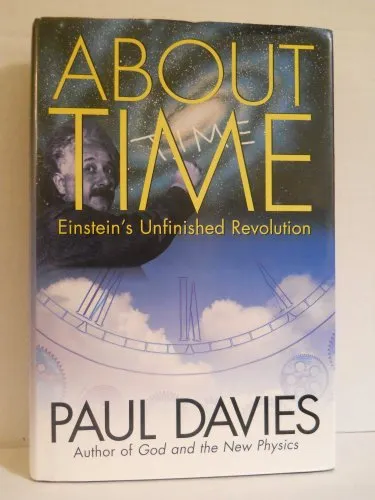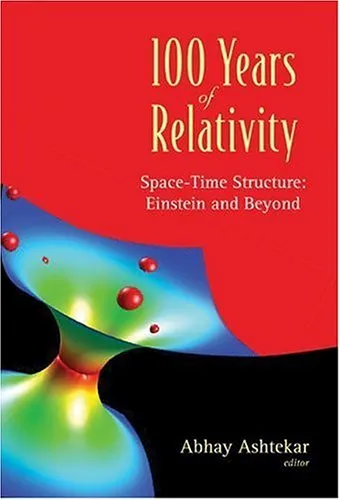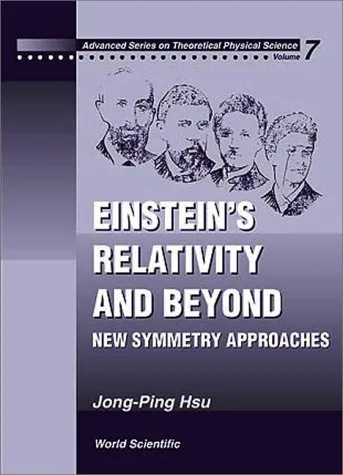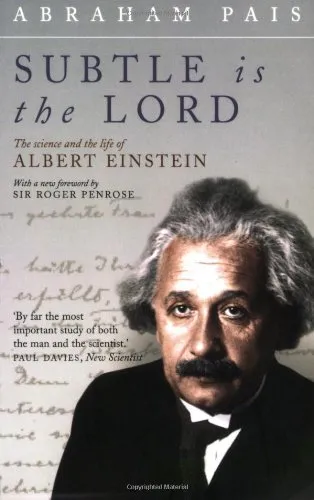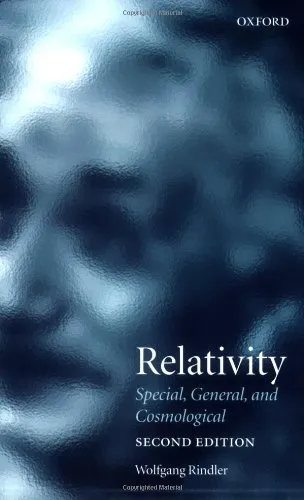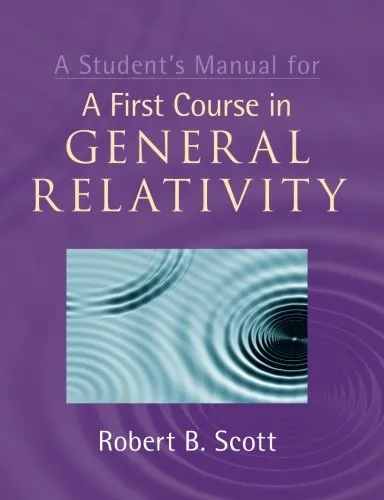Understanding Relativity: Origin and Impact of a Scientific Revolution
4.0
Reviews from our users

You Can Ask your questions from this book's AI after Login
Each download or ask from book AI costs 2 points. To earn more free points, please visit the Points Guide Page and complete some valuable actions.Related Refrences:
Introduction to "Understanding Relativity: Origin and Impact of a Scientific Revolution"
Einstein's theory of relativity revolutionized our understanding of the physical world, challenging age-old concepts of space, time, and gravity. "Understanding Relativity: Origin and Impact of a Scientific Revolution" takes readers on an illuminating journey through the profound ideas, historical context, and far-reaching consequences of Einstein’s groundbreaking work. This book is designed to balance rigor with accessibility, making it suitable for both scientific enthusiasts and educated laypeople eager to explore the intricacies of relativity and its cultural impact.
Detailed Summary of the Book
The book is divided into carefully structured sections that weave together the science, history, and influence of relativity. The initial chapters delve into the pre-Einstein era, contextualizing the need for a radical shift in scientific thought. Readers are introduced to the classical Newtonian worldview, which dominated physics for over two centuries, and the limitations of its approach as experimental evidence from the late 19th century began to contradict established theories.
In the core chapters, the book explores the development and implications of Einstein’s two theories of relativity: special relativity and general relativity. Special relativity fundamentally reshaped our understanding of space and time, while general relativity revolutionized concepts of gravity by presenting it as the curvature of spacetime. Both theories are explained using a mix of intuitive analogies and mathematical treatments accessible to non-specialists yet rigorous enough to satisfy curious students of physics.
Subsequent chapters focus on the societal and philosophical impacts of relativity. The theory spurred debates over objectivity, causality, and the nature of scientific truth. It influenced fields ranging from philosophy to art, literature, and even politics during the 20th century. The book also highlights Einstein’s unique role as a public intellectual, addressing his thoughts on the broader responsibilities of scientists to society.
Finally, the book examines the legacy of relativity in modern physics, from its role in advancing quantum mechanics to its application in contemporary technologies such as GPS and astrophysics. By blending scientific exposition with historical and cultural analysis, the book paints a holistic picture of relativity as both a scientific and cultural phenomenon.
Key Takeaways
- Understanding the limitations of classical physics and the need for new frameworks such as relativity.
- The revolutionary ideas of special and general relativity, including time dilation, length contraction, and the curvature of spacetime.
- Einstein’s process of scientific innovation and how his ideas emerged in the context of experimental and theoretical progress.
- The influence of relativity on philosophy, culture, and other scientific disciplines.
- How relativity continues to shape contemporary science and technology, proving its enduring relevance.
Famous Quotes from the Book
"To understand relativity is to embrace a worldview where the seemingly fixed and eternal become fluid and intertwined."
"Relativity shattered the clockwork universe of Newton, replacing it with a cosmos governed by elegance, flexibility, and profound mystery."
"Einstein’s genius lay not only in solving mathematical riddles but also in fundamentally challenging humanity’s perception of reality."
Why This Book Matters
Relativity is more than just physics—it is a lens through which we can view humanity’s intellectual evolution. This book equips readers with the tools to comprehend and appreciate Einstein’s transformative theories and their enduring impact on science and culture. By demystifying concepts often perceived as esoteric, "Understanding Relativity" bridges the gap between scientific literacy and a broader appreciation of human ingenuity.
Moreover, the book emphasizes that relativity is not merely a relic of 20th-century science but an active, dynamic part of modern scientific exploration. From black holes and gravitational waves to GPS and cosmology, relativity continues to shape how we understand the universe and our place in it. This makes the book an essential read not only for those fascinated by Einstein but for anyone curious about the profound ideas shaping our reality.
Ultimately, "Understanding Relativity" is a celebration of intellectual curiosity, scientific progress, and the power of ideas to reshape our world. As such, it will inspire readers to delve deeper into the mysteries of the universe, paving the way for a richer appreciation of science and human endeavor.
Free Direct Download
You Can Download this book after Login
Accessing books through legal platforms and public libraries not only supports the rights of authors and publishers but also contributes to the sustainability of reading culture. Before downloading, please take a moment to consider these options.
Find this book on other platforms:
WorldCat helps you find books in libraries worldwide.
See ratings, reviews, and discussions on Goodreads.
Find and buy rare or used books on AbeBooks.
1289
بازدید4.0
امتیاز0
نظر98%
رضایتReviews:
4.0
Based on 0 users review
Questions & Answers
Ask questions about this book or help others by answering
No questions yet. Be the first to ask!
